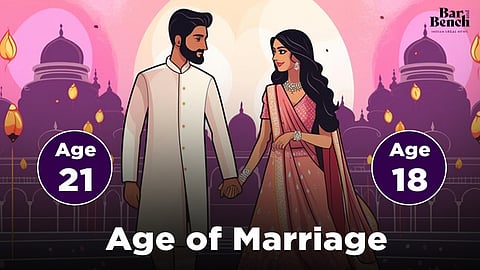
- News
- Columns
- Interviews
- Law Firms
- Apprentice Lawyer
- Legal Jobs
- हिंदी
- ಕನ್ನಡ

The Allahabad High Court recently observed that the difference in the legal age for marriage between men and women in India is “nothing but a vestige of patriarchy” [Sanjay Chaudhary v. Guddan @ Usha].